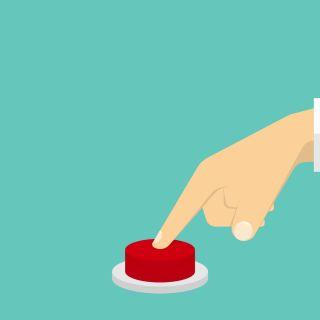Why Does My Partner Push My Buttons So Strongly? And why do I have to do all the heavy lifting in this relationship? Reviewed by Tyler Woods

KEY POINTS-
- Triggers in a relationship are there to teach us, not torture us.
- 10% of the reaction we have to most relationship issues is connected to the content; 90% of the energy in our reactivity comes from our past.
- If your partner seems to be loafing in the relationship, see if they're actually in contributing in a different way than you do.
- It is perfectly okay for there to be a division of labor in a relationship.

I always appreciate it when readers write to make comments or ask questions. This past week I received the following:
I’ve been in a same-sex relationship for 32 years and frequently wonder why, in relationships, it seems to get harder to overcome the "triggers" rather than easier. I’m wondering if you’ve written anything about how to manage it/shift gears when one partner feels like they’re doing the heavy lifting about shifting dynamics and the other partner isn’t aware and/or pretty passive about their part of the bargain.
Kind regards
Joan (not real name)
Dear Joan:
Your letter contains two questions, each of which is important. They are:
(1) Why do triggers get stronger the longer we stay in a relationship?
(2) What to do when one partner seems to take a more active role in relationship maintenance or repair than the other?
Let me answer these separately and then try to integrate them in conclusion.
Why do triggers get more intense the longer we stay in a relationship?
Triggers, or “buttons” or flash points in a relationship, are not there to torture you, but to teach you. I’ve written about this elsewhere, but we couples therapists like to say that “when it’s hysterical, it’s historical.” That is, if your partner being late makes you melt down in rage, or if them repeatedly sleeping in on a Sunday while you’re taking care of household business makes you want to attack them with an ice pick, only 10 percent of your reaction has to do with the content of the issue itself: you don’t like being kept waiting, or you’re upset because you feel you’re carrying an unfair burden in the household “to do” list. But 90 percent of the energy you bring to your response—melting down in rage or wanting to attack your partner with an ice pick—comes from a wound in your past.
Perhaps you had a parent who was chronically late or whom you couldn’t completely depend upon, and you were frequently the last one to be picked up from school, or were sometimes even forgotten. This could explain the strength of your reactivity when your partner is repeatedly late. Or perhaps you were a parent to your parent even while you were a child, needing to take responsibility for things in the household before you were chronologically ready to do so. You felt you always had to be the adult in the room. This would make sense of your feeling murderous rage when your partner sleeps in while you do the laundry each week.
We need to understand the source of our triggers if we hope to be able to control them, rather than allow them to control us. Left unexamined, our sensitivity and our reactivity to these triggers gets stronger and stronger, until we end up loathing the one person we once loved more than anyone else in the whole world.
What to do when one partner seems to take a more active role in relationship maintenance or repair than the other?
This is a more frequent complaint than you might realize. In fact, I would say it’s an almost universal complaint for couples who show up in my office. In nearly every relationship there is one (often the woman in a heterosexual relationship) who is more relationally attuned and focused, and one who is less focused.
If you think you’re the one more focused on relationship maintenance, ask yourself, first, if it’s really true. Are there ways your partner also makes important contributions to the relationship, even though it doesn’t look the way you do it? Perhaps your partner manages the social calendar or does the concrete planning of vacations or does things that are more in the language or “doing” rather than “feeling.” These are still important to the health of the relationship—they just might not know how or like talking about what they’re doing in relational language. That is, they may not say, “I think we need to spend quality time together,” but they do organize quality time together.
But let’s say it is true that you are the one focused on the relationship and your partner seems oblivious. Is this a trigger for you in the sense described above? That is, do you feel like you’re bearing an unfair amount of relationship responsibility that reminds you of something from your past? Because, when you stop to think about it, why should you actually care that you’re doing more of the relationship heavy lifting, unless it’s really a chronic, across-the-board kind of thing?
What I’m trying to suggest here, and here comes the integration I was promising at the beginning, is that it’s perfectly okay for there to be a division of labor in the relationship. It doesn’t necessarily mean your partner doesn’t love you as much, or care as much, as you love or care about them. It may simply mean they contribute in other ways that you might be oblivious to. If this is a trigger, deal with it like a trigger. If it’s reflective of a deeper imbalance in your relationship, it’s time to have a conversation to correct that balance. If you’ve already tried and it hasn’t worked, get a couple’s counselor to help.
- Questions and Answers
- Opinion
- Story/Motivational/Inspiring
- Technology
- Art
- Causes
- Crafts
- Dance
- Drinks
- Film/Movie
- Fitness
- Food
- Games
- Gardening
- Health
- Home
- Literature
- Music
- Networking
- Other
- Party
- Religion
- Shopping
- Sports
- Theater
- Wellness
- News
- Culture
- War machines and policy

